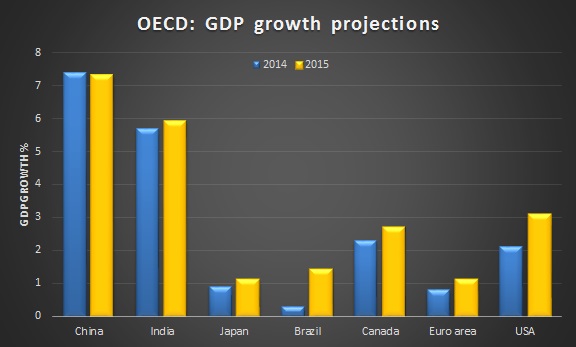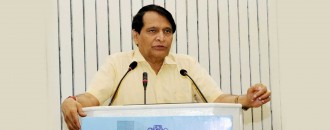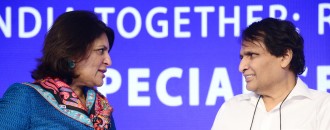
Sluggish growth in Europe slows down India’s exports in August
The Dollar Business Bureau | @TheDollarBiz Uneven growth among major economies and a slowdown in Europe has adversely affected India’s exports in recent months leading to a modest Y-o-Y growth of below 3% in August 2014. According to the Ministry of Commerce, India’s exports stood at around $26.9 billion in August 2014, up about 2.35% from $26.3 billion recorded a year earlier, but down about 2.8% from exports worth $27.7 billion recorded in July 2014.
 M. Rafeeque Ahmed, President, FIEO
M. Rafeeque Ahmed, President, FIEOCumulative exports during April – August 2014 of around $134.8 billion is still up about 7.3% from $125.6 billion in the corresponding period last year, but below the 8.62% growth registered for the April-July 2014 period. This does not augur well for India’s export sector which is expected to grow 8% Y-o-Y to about $340 billion in FY2014-15. The Federation of Indian Export Organisations (FIEO) has expressed disappointment over the slow growth in exports. M. Rafeeque Ahmed, President, FIEO, said that global recovery is weak and non-uniform. “While USA and emerging economies are posting good results, Europe has again fallen into contraction,” he said. The FIEO chief added that another reason for low growth in exports could be the lower-than-expected petroleum exports largely due to softening of crude prices. To help the export sector, Ahmed has urged the government to re-introduce interest subvention on exports and address high cost of doing business in India. Meanwhile, the OECD has warned that while a moderate expansion is underway in most major advanced and emerging economies, growth remains weak in the euro area, which runs the risk of prolonged stagnation if further steps are not taken to boost demand. Presenting the Interim Economic Assessment in Paris, OECD Deputy Secretary-General and Acting Chief Economist Rintaro Tamaki said, “The global economy is expanding unevenly, and at only a moderate rate. Trade growth therefore remains sluggish and labour market conditions in the main advanced economies are improving only gradually.”
 As of September 15, 2014 (Source - OECD)
As of September 15, 2014 (Source - OECD)Tamaki added that the euro area needs more vigorous monetary stimulus. “Given the low-growth outlook and the risk that demand could be further sapped if inflation remains near zero, or even turns negative, the OECD recommends more monetary support for the euro area, including quantitative easing,” he said.
This article was published on September 17, 2014.





 to success.
to success.